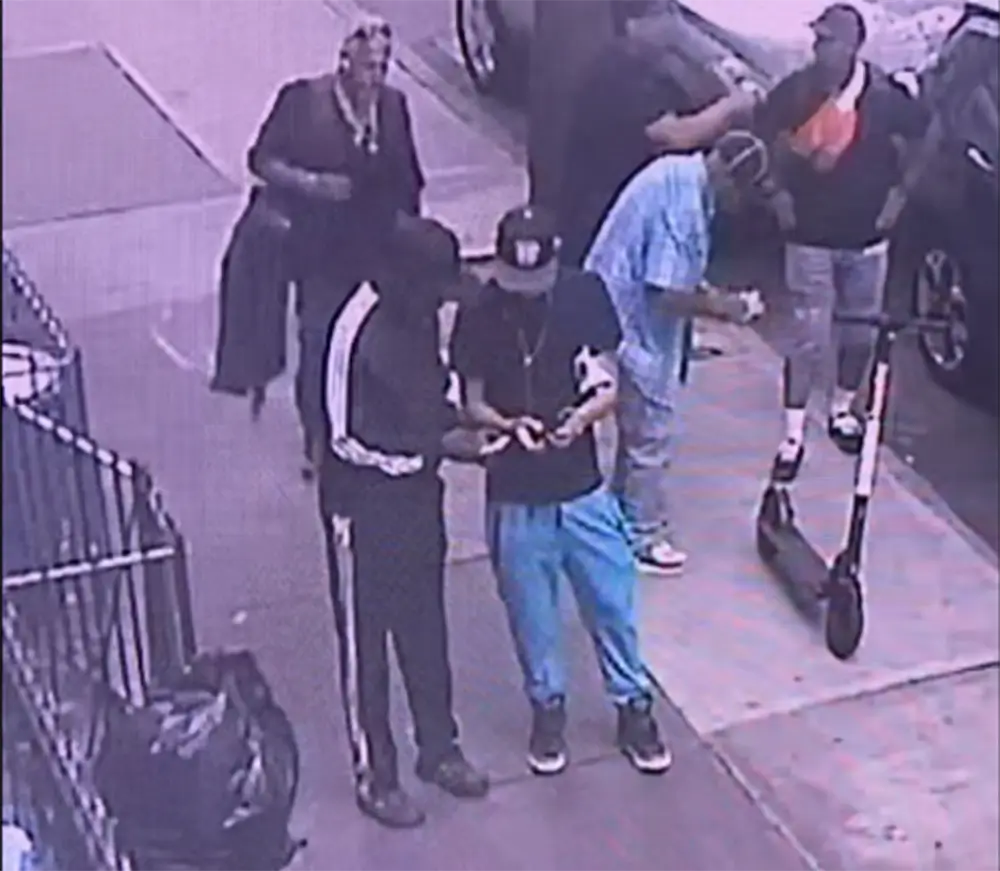Dealer Who Sold Fatal Drugs To Actor Michael K. Williams Sentenced To 10 Years
A drug dealer operating in New York City has been handed a 10-year prison sentence after being found guilty of supplying fentanyl-laced heroin to actor Michael K. Williams, known for his role in “The Wire,” resulting in Williams’ fatal overdose.
The individual responsible, Irvin Cartagena, aged 40 and hailing from Aibonito, Puerto Rico, received his sentence from U.S. District Judge Ronnie Abrams on Friday. In April, Cartagena had entered a guilty plea for his involvement in a drug distribution conspiracy. Within the framework of a plea agreement, Cartagena acknowledged that some of the drugs he distributed directly led to the death of Michael K. Williams.
Williams tragically experienced a fatal overdose in his Brooklyn penthouse residence in September 2021, just a day after procuring the substances. Law enforcement revealed that the heroin had been purchased from Cartagena on a Brooklyn sidewalk in the Williamsburg neighborhood. The transaction was captured by a security camera.

Michael K. Williams achieved widespread recognition for his role as Omar Little, a renegade thief of drug dealers, in HBO’s acclaimed series “The Wire,” which aired from 2002 to 2008. In addition to his impactful performance on the highly regarded drama, Williams also starred in various films and TV shows, including “Boardwalk Empire.” Throughout his career, he garnered five Emmy nominations, with three of them being for Outstanding Supporting Actor in a Limited Series or Movie.
Facing a mandatory minimum sentence of five years in prison and the potential for up to 40 years of incarceration, Cartagena expressed remorse for his actions before the official sentencing. He stated, “I am deeply sorry for my actions. Our intent was never for any loss of life when we engaged in drug sales.”
Judge Abrams acknowledged that Cartagena’s acquaintances described him as “helpful, humble, and hardworking” during periods when he was not involved in drug use. The judge expressed optimism about the potential for rehabilitation through treatment, aiming to guide Cartagena onto a more positive and law-abiding trajectory.
In an official statement, U.S. Attorney Damian Williams highlighted that those involved in the drug transaction with Williams were already aware of a previous fatality resulting from the drugs they were distributing. CBS News previously reported that this drug trafficking network had been identified and had been active in Brooklyn’s Williamsburg neighborhood since August 2020.
Prosecutors revealed that Cartagena and his associates persisted in selling fentanyl-laced heroin within Manhattan and Brooklyn even following Williams’ death. Eventually, Cartagena fled to Puerto Rico, where he was apprehended in February 2022. Concurrently, three additional individuals were arrested in Manhattan during the same month.
In a defense document submitted before the sentencing, Irvin Cartagena’s attorney, Sean Maher, explained that his client had engaged in the sale of heroin on the streets to sustain his own addiction. Maher highlighted that Cartagena’s involvement in the transaction leading to Michael K. Williams’ death was a tragic happenstance, suggesting that any of the other individuals present in the vicinity could have been in the same position, selling the same drugs. Maher emphasized that no amount of prison time would bring back the precious life that was lost.
Contrastingly, prosecutors, in their submission prior to sentencing, had advocated for a minimum sentence of 12 years. The court’s Probation Department, taking into consideration Cartagena’s history of 14 prior convictions related to drug-related offenses including burglary, robbery, and prison escape, had recommended a 20-year imprisonment term.
However, Judge Abrams expressed her view that the proposed recommendations were excessively severe. She declared that the sentence being handed down, while stern, was appropriate and did not exceed the necessary measure.




